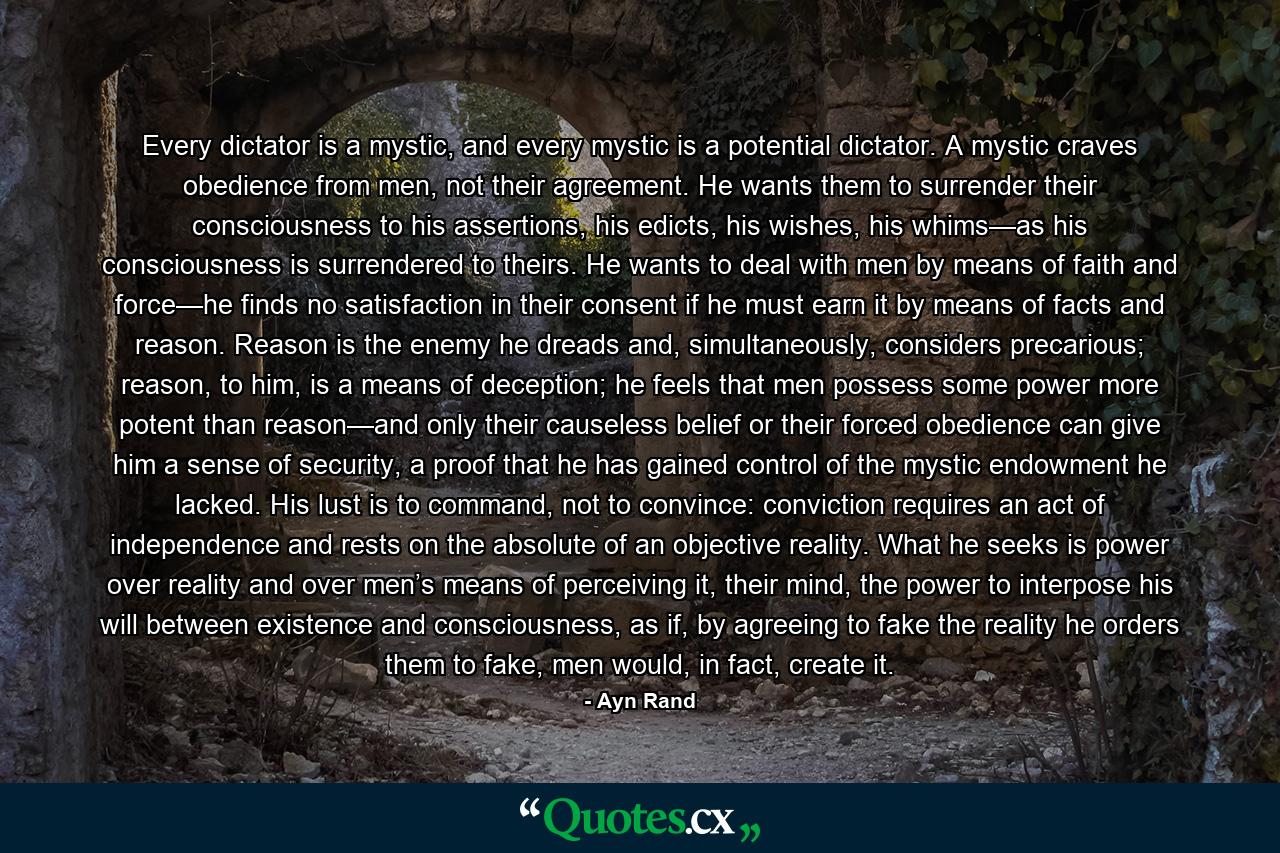Every dictator is a mystic, and every mystic is a potential dictator. A mystic craves obedience from men, not their agreement. He wants them to surrender their consciousness to his assertions, his edicts, his wishes, his whims—as his consciousness is surrendered to theirs. He wants to deal with men by means of faith and force—he finds no satisfaction in their consent if he must earn it by means of facts and reason. Reason is the enemy he dreads and, simultaneously, considers precarious; reason, to him, is a means of deception; he feels that men possess some power more potent than reason—and only their causeless belief or their forced obedience can give him a sense of security, a proof that he has gained control of the mystic endowment he lacked. His lust is to command, not to convince: conviction requires an act of independence and rests on the absolute of an objective reality. What he seeks is power over reality and over men’s means of perceiving it, their mind, the power to interpose his will between existence and consciousness, as if, by agreeing to fake the reality he orders them to fake, men would, in fact, create it.
